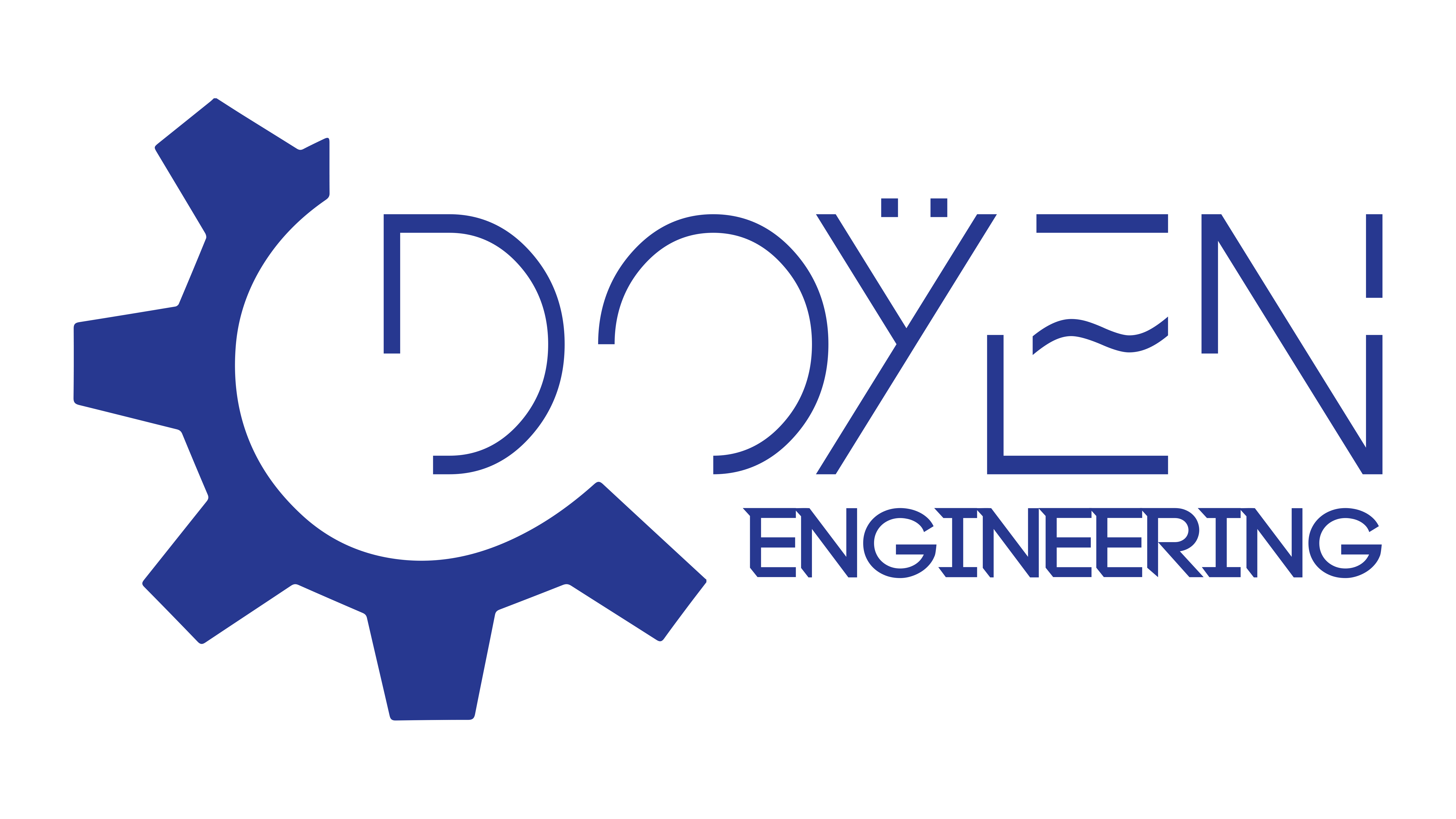
Introduction
Overview of Electrical Engineering
Electrical engineering is a dynamic field that plays a crucial role in the technological advancements we see today. It encompasses areas such as power systems, electronics, telecommunications, and control systems. Professionals in this field design and develop a wide range of devices, from simple circuits to complex systems that power our homes and cities.
- Key Areas:
- Power Systems
- Electronics and Circuit Design
- Telecommunications
- Control Systems and Automation
For anyone passionate about technology, electrical engineering offers a robust platform for innovation and problem-solving.
Definition of Continuing Education
Continuing education refers to the ongoing learning process that professionals engage in after their formal education. In electrical engineering, this can include obtaining advanced degrees, certifications, or attending workshops. It’s essential for staying relevant in a constantly evolving industry.
- Benefits of Continuing Education:
- Keeps skills up-to-date
- Fosters career growth
- Encourages lifelong learning
Many engineers find that pursuing further education not only enhances their technical skills but also opens doors to new opportunities and networks.
Evolution of Electrical Engineering
Historical Developments
The journey of electrical engineering is fascinating, marked by groundbreaking inventions and discoveries. It all began in the late 19th century, with key figures such as Thomas Edison and Nikola Tesla shaping the landscape of electrical systems. This era saw the advent of alternating current (AC) and direct current (DC), changing how power was generated and distributed.
- Notable Milestones:
- 1873: James Clerk Maxwell formulates the theory of electromagnetism.
- 1879: Thomas Edison invents the practical electric light bulb.
- 1887: Heinrich Hertz discovers electromagnetic waves, paving the way for wireless communication.
These early innovations laid the foundation for electrical engineering as we know it today.
Current Trends in the Field
Fast forward to the present, and electrical engineering continues to evolve rapidly. Today's trends emphasize renewable energy, smart technologies, and automation, reflecting society's needs for sustainability and efficiency.
- Emerging Trends:
- Renewable Energy Integration: Increasing emphasis on solar and wind energy requires innovative electrical systems.
- Smart Grids: Modern electrical systems are being upgraded to allow for real-time data and energy management.
- Internet of Things (IoT): Integration of smart devices into everyday life enhances connectivity and efficiency.
Engineers in this field find themselves at the forefront of these exciting developments, showcasing how continuing education is vital to adapting to these innovations.
Benefits of Continuing Education in Electrical Engineering
Enhanced Technical Skills
Continuing education is crucial for electrical engineers who want to stay relevant and competitive. As technology advances, new skills become essential. By participating in workshops, online courses, and seminars, engineers can enhance their technical prowess significantly.
- Key Enhancements Include:
- Understanding New Technologies: Get hands-on experience with the latest tools and software.
- Advanced Problem Solving: Learn innovative techniques for tackling complex engineering challenges.
- Staying Competitive: Regularly updating skills ensures you can meet industry demands.
For instance, an engineer who recently completed a course on smart grid technology found themselves more proficient in their job, leading to increased project responsibilities and recognition.
Career Advancement Opportunities
The pursuit of continuing education can create new avenues for career growth. Professionals who invest in their education often find themselves positioned for promotions, higher salary potentials, and roles in leadership.
- Career Benefits:
- New Job Opportunities: Many employers prioritize candidates with recent certifications and advanced training.
- Networking: Classes often provide opportunities to connect with industry peers and experts.
- Shift to Leadership Roles: Enhanced knowledge can lead to roles involving project management or team leadership.
For example, an engineer who completed a management course alongside technical training was able to transition from a technical position to a managerial role within a year, demonstrating the power of ongoing education in shaping career trajectories.
Challenges Faced in Pursuing Continuing Education
Time Constraints
Despite the benefits, pursuing continuing education in electrical engineering does come with challenges. One of the most significant obstacles is time constraints. Many engineers juggle their professional responsibilities with personal commitments, making it difficult to find time for additional learning.
- Common Time-Related Issues:
- Full-Time Work: Balancing a demanding job with study hours can be overwhelming.
- Family Responsibilities: Many engineers are also caretakers, leaving little spare time for education.
- Workplace Projects: Engaging in important projects can hinder the ability to attend classes or training sessions.
For instance, an engineer who enrolled in a part-time master's program shared how the late nights and weekends dedicated to studying often took away from family time, highlighting the real struggle to find a suitable balance.
Financial Considerations
In addition to time constraints, financial considerations are also a significant challenge. The costs associated with continuing education can be daunting, particularly for engineers who are already managing student loans or other financial obligations.
- Financial Factors to Consider:
- Tuition Fees: Advanced degrees and certifications often come with hefty price tags.
- Resource Materials: Textbooks, software, and other resources can add to the overall expense.
- Lost Income: Taking time off work for classes may result in lost wages.
One electrical engineer recounted how the cost of a specialized certification program forced them to weigh the potential benefits against their current financial situation, emphasizing the need for careful financial planning when considering education options.Overall, while there are undeniable challenges to pursuing continuing education, many professionals find the initiatives ultimately worth the effort and investment.
Available Continuing Education Programs in Electrical Engineering
Online Courses
For engineers navigating time and financial challenges, online courses provide a flexible and convenient way to enhance skills. With many reputable institutions offering these courses, professionals can learn at their own pace from the comfort of their homes.
- Key Advantages of Online Learning:
- Flexible Scheduling: Take classes at a time that suits your lifestyle.
- Wide Variety of Topics: From power systems to embedded systems, the choices are abundant.
- Cost-Effectiveness: Often less expensive than traditional in-person courses.
An electrical engineer shared how enrolling in an online course on renewable energy technologies allowed them to learn cutting-edge practices without disrupting their job or family commitments.
Professional Certifications
In addition to online courses, professional certifications are a valuable option for electrical engineers looking to validate their expertise. Certifications not only demonstrate proficiency but also often enhance employability.
- Popular Certifications:
- Certified Automation Professional (CAP): Focuses on automation and control technologies.
- Project Management Professional (PMP): Provides skills for managing projects effectively.
- Professional Engineer (PE) License: A credential that signifies a high level of expertise and commitment in engineering.
For example, an engineer who earned their PMP certification reported significant career progression, including senior project management roles and increased salary, underscoring the impact of professional certifications on career growth.As the landscape of electrical engineering continues to evolve, these educational programs play a crucial role in helping professionals stay relevant and excel in their careers.
Importance of Networking in Continuing Education
Building Professional Relationships
Networking is a vital aspect of continuing education that shouldn’t be overlooked. Establishing professional relationships can significantly enhance an engineer’s career. Engaging with peers, educators, and industry leaders opens up opportunities for collaboration and mentorship.
- Benefits of Networking:
- Knowledge Sharing: Gain insights from others' experiences and expertise.
- Mentorship Opportunities: Learn from more experienced professionals who can guide your career path.
- Collaboration: Form partnerships for projects or research opportunities.
For instance, after attending a professional conference, an engineer found a mentor who helped them navigate complex work challenges, illustrating how strong professional connections can foster growth.
Staying Updated on Industry Developments
In the fast-changing field of electrical engineering, staying current with industry trends is crucial. Networking facilitates access to the latest information and developments.
- Ways Networking Helps:
- Access to Industry News: Engage in discussions that surface recent advancements and technologies.
- Participation in Workshops: Collaborate on topics that are shaping the future of engineering during events or study groups.
- Learning from Peers: Discussing real-world applications and challenges with fellow engineers can lead to innovative solutions.
One engineer shared how a professional network led them to a workshop on smart technologies, which ultimately sparked ideas that inspired their team’s next project, emphasizing the value of being connected.In summary, networking not only enriches the educational journey but also enhances career trajectories by fostering relationships and keeping professionals updated on vital industry changes.
Role of Continuing Education in Innovation in Electrical Engineering
Encouraging Creativity
Continuing education plays a pivotal role in fostering creativity among electrical engineers. By exposing professionals to new concepts and diverse perspectives, it inspires innovative thinking that can lead to groundbreaking solutions.
- How Continuing Education Boosts Creativity:
- Diverse Learning Environments: Workshops and courses often include collaborative projects that stimulate fresh ideas.
- Cross-disciplinary Knowledge: Learning from other fields, such as software engineering or environmental science, can spark unique approaches.
- Inspiration from Experts: Guest lectures and industry leaders often share unconventional solutions that can reshape traditional thinking.
For instance, an engineer who attended a seminar on creative problem-solving techniques implemented new brainstorming methods in their team, resulting in a surge of innovative product designs.
Implementing New Technologies
Equipping engineers with knowledge about the latest technologies is crucial for fostering innovation. Continuing education helps professionals stay abreast of emerging tools and methodologies, allowing them to implement these advancements into their work effectively.
- Key Aspects of Technology Implementation:
- Hands-On Training: Many programs offer practical experience with emerging technologies, such as IoT or renewable energy systems.
- Adaptation to Industry Trends: Training ensures engineers can quickly adapt to market demands and technological advancements.
- Collaboration on Tech Projects: Engineers can work on projects that directly apply new technologies in real-world scenarios.
One engineer shared how a specialized course on artificial intelligence in electrical engineering enabled them to apply AI algorithms to optimize system designs, showcasing the power of ongoing education in integrating cutting-edge technologies.Overall, continuing education not only ignites creativity but also facilitates the effective implementation of new technologies, propelling innovation in the field of electrical engineering.

Case Studies of Successful Professionals Emphasizing Continuing Education
Impact on Career Trajectory
The success stories of many professionals highlight the profound impact that continuing education has on career trajectories in electrical engineering. Real-world examples demonstrate how furthering their education propelled individuals into rewarding roles and greater responsibilities.
- Examples of Career Advancement:
- Jane Doe, Electrical Engineer: After completing her master's degree while working, Jane transitioned from a mid-level position to a senior management role within two years, attributing her promotion to the advanced knowledge and networking opportunities she gained.
- John Smith, Project Manager: John enhanced his skills through professional certifications, leading to a significant salary increase and the ability to lead high-profile projects, showcasing the tangible benefits of continued learning.
These cases underline that investing in education not only enriches knowledge but also opens doors to new career pathways.
Learning from Industry Leaders
Continuing education also facilitates valuable learning from industry leaders who share their experiences and insights. Many programs feature guest speakers who offer a glimpse into successful career journeys and innovative practices.
- Key Learnings from Industry Leaders:
- Innovative Approaches: Drawing inspiration from leaders helps engineers adopt new methodologies that may improve their work.
- Mentorship Opportunities: Engaging with industry veterans can lead to mentorship, guiding engineers on their career paths.
- Insights on Market Trends: Leaders often share critical trends and emerging technologies, equipping professionals to stay ahead.
For example, an electrical engineer who attended a panel discussion with industry leaders credits their current role to insights gained during that event, enabling them to align their projects with industry expectations.These case studies highlight how continuing education not only impacts career development profoundly but also fosters connections and knowledge that shape successful engineering careers.
Addressing the Skills Gap through Continuing Education in Electrical Engineering
Meeting Industry Demands
As technology evolves, the skills required in electrical engineering continually change, often leading to a skills gap in the workforce. Continuing education plays a crucial role in bridging this gap by equipping engineers with the latest competencies that align with industry demands.
- Key Benefits:
- Curriculum Alignment: Educational programs are designed to reflect current industry requirements, ensuring that skills taught are relevant.
- Hands-On Experience: Many courses offer practical training that mimics real-world challenges, preparing engineers for on-the-job situations.
- Adaptability: With training on emerging technologies like AI and IoT, engineers are better prepared to meet new expectations.
One engineer noted that after participating in a course focused on smart grid technologies, they could lead projects that were previously out of their expertise, demonstrating the practical impact of education on meeting industry needs.
Bridging the Knowledge Divide
Continuing education also helps bridge the knowledge divide between seasoned professionals and newcomers entering the field. It fosters an environment where both groups can learn from one another and share insights, creating a more collaborative and knowledgeable workforce.
- Strategies for Bridging Knowledge Gaps:
- Mentoring Programs: Pairing experienced engineers with new graduates facilitates knowledge transfer and skill development.
- Cross-Training Sessions: Engaging team members in diverse training helps all individuals understand different facets of electrical engineering.
- Community Engagement: Educational institutions collaborating with industry offer workshops that promote shared learning experiences.
An engineer who participated in a mentoring program shared how learning alongside newcomers helped reinforce their own foundational knowledge while offering guidance in newer technologies, emphasizing the reciprocal benefits of education.In summary, continuing education in electrical engineering is vital for meeting industry demands and bridging knowledge gaps among professionals, ultimately leading to a more competent and adaptable workforce.
Conclusion
Recap of Key Points
Throughout this discussion, the importance of continuing education in electrical engineering has been highlighted across several facets. From enhancing technical skills and career advancement to bridging the knowledge divide, ongoing education emerges as a vital element for professional growth.
- Key Highlights:
- Continuing education amplifies technical expertise and creativity.
- Networking significantly enriches learning experiences.
- Addressing the skills gap ensures industry readiness.
As professionals invest in their education, they also contribute to innovation in the field, fostering a more dynamic engineering environment.
Future Outlook for Continuing Education in Electrical Engineering
Looking ahead, the future of continuing education in electrical engineering appears promising. With rapid technological advancements, there will be an increasing demand for flexible, relevant training programs. Organizations and educational institutions must adapt to these changes to provide engineers with accessible learning opportunities.
- Emerging Trends:
- Greater Emphasis on Online Learning: With busy schedules, more engineers will likely turn to online platforms for education.
- Focus on Soft Skills: Future programs will increasingly address leadership, communication, and project management skills alongside technical training.
- Lifelong Learning Culture: An ongoing commitment to learning, whether through certifications or informal training, will become essential for professional relevance.
A notable engineer remarked that embracing continuing education not only transformed their career but also fueled their passion for the field, inspiring a commitment to lifelong learning. This reflects the overarching sentiment that continuous education is key to thriving in the ever-evolving landscape of electrical engineering.





